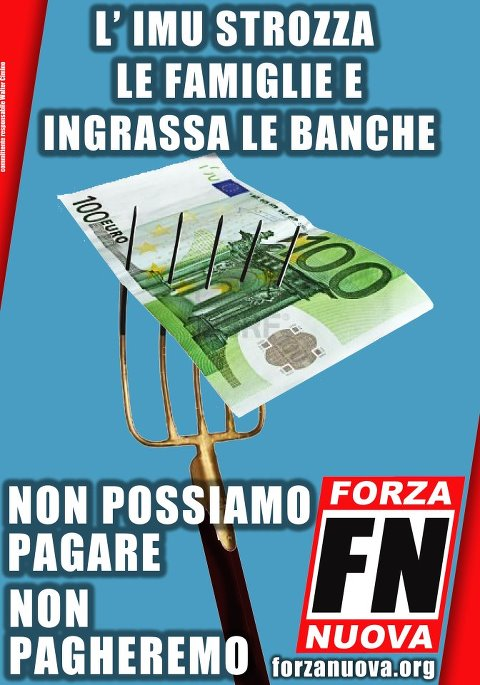Mario Unnia of the Italian Business Ethics Network had an op-ed in il legno storto last week in which he recommended tax resistance to the Northern League. From Google’s machine translation, which, though clumsy, gets the point across:
…In the Northern League who pays taxes is an irreducible conflict between him and those who do not pay, especially if they live under in Florence, because the money collected through taxes the state delivers services in the beneficiary is also the evader.…
Yet, one wonders, there is some other solution that would alleviate this suffering?
Maybe. The League could be considered a form of protest called “mutiny tax.” The dictionary defines the mutiny “an offense under the military penal code which consists of a qualified and collective disobedience,” and then the mutiny tax may qualify as a crime.
But there is another way of understanding the mutiny tax, a milder form of protest, yet very significant, is the tradition and Anglo American. If the League of paying taxes, skeptical on the outcome of the fight against tax evasion, asked as compensation cutting wasteful spending, but the government, while being able to do, it does not, they might decide to pay due to an account bound to a bank run by men of the League, and to transfer the money to tax only in respect of the future reduction of costs in proportion to the actual cutting. Thus both the VAT, and employees, but would honor the obligation to require the Government. There are thousands of legal and political objections to this proposal, in relation to revenue from taxes on income, but there would be less if, for example, the tax protest concern special taxes, as the arena and had the local communities.
Of course the mutiny is the last fiscal response to an untenable situation, but desperate times desperate measures. This form of mutiny would certainly created a strong legal controversy, but has a high political significance. For the League would be a factor in renewed confidence with his people, and contains a warning to the government: tax have the knife in his hand citizens. But there is a question: since the mutiny tax those who do usually pay taxes, the League is confident that his people fall into this category worthy? If so, can seize the initiative.

